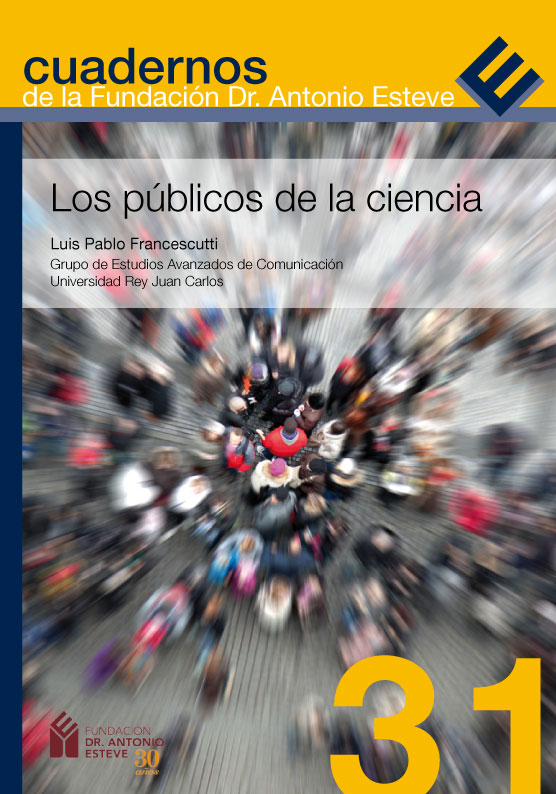
Opinion polls usually reflect a preference of the public for science topics. Audience data, however, appear to show exactly the opposite. How interested is society in science? Which real audience has not only the traditional means offered by scientific contents, but also dissemination possibilities such as blogs or museums? How are social networks and internet influencing the dissemination of scientific news?
The Esteve Foundation presents Los públicos de la ciencia. This is a study drawn up by the Advanced Study Group of Communication of Universidad Rey Juan Carlos, directed by Pablo Francescutti in which, for the first time, the most significant data of the main surveys on the public perception of science are cross checked with the real audiences of all today’s media that disseminates scientific knowledge.
The results of this report on the science public contradict alarmists, but they also confirm the significant imbalance among almost 17 million Spanish people who showed their interest in science and technology in the survey, by the Spanish Foundation for Science and Technology (FECYT) in 2010, and the 5 or 6 million who usually consume this type of information.
Apart from the report by Francescutti, four journalists and four scientists interpret the results of the research in this book, in which defection of young members of the public is observed. They are gradually abandoning traditional media to turn towards internet and social networks. There is also a significant gender gap, and women have become one of the pending issues in scientific dissemination.
Coral Larrosa (head of scientific news in Telecino news programmes), Esperanza García Molina (coordinator of the SINC agency), Nuria Ramírez de Castro (chief editor of Society news in the newspaper ABC), and Javier Armentia (director of the Planetarium of Pamplona) are the representatives in this book on the world of communication, while the field of science is represented by Antonio Ariño (Vice rector of Culture and Equality of Universidad de Valencia), Pere-Joan Cardona (of the Experimental Tuberculosis Unit of Hospital Germans Trias i Pujol), Manuel de León (of the Institute of Mathematical Sciences) and Rafael Maldonado (of the Neuropharmacology Laboratory of Universidad Pompeu Fabra). They all participated in a debate on scientific journalism held on 11 June 2014 in Madrid.